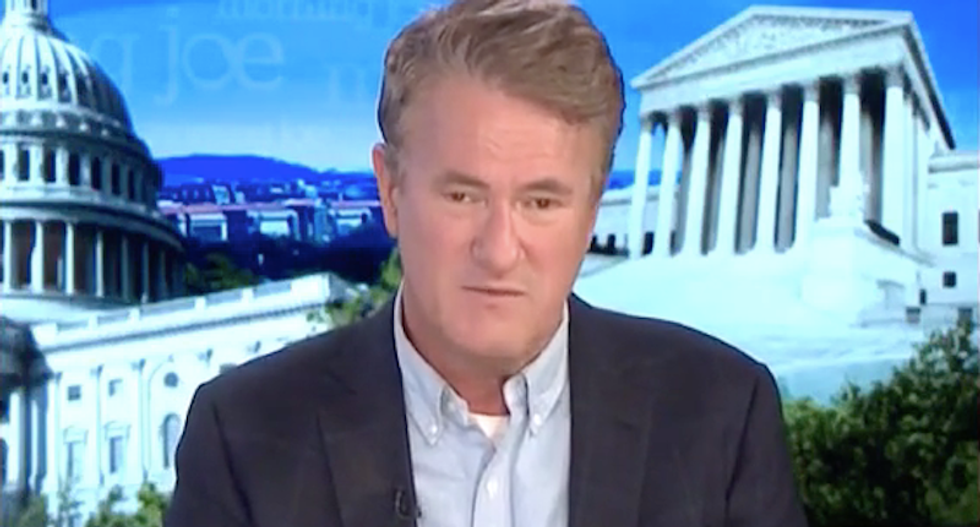
MSNBC's Joe Scarborough warned Senate Majority Leader Mitch McConnell was committing "political suicide" by continuing to cover for President Donald Trump during the coronavirus pandemic.
The president's approval is sliding again as U.S. coronavirus deaths approach 60,000, threatening his chances at re-election and putting McConnell in danger of losing his leadership position -- and possibly even his Senate seat.
"If Pennsylvania and Michigan and Florida flip, it's all over anyway," Scarborough said. "Whether you're looking at 1974, 1980, 1994, 2006, 2008, I mean, whatever you look at, these waves usually sweep all in one direction. Right now, the momentum is going away from the Republicans because they continue to embrace Donald Trump. They are not speaking out in a way that even some of their governors are. That is political suicide."
The "Morning Joe" host said the Kentucky Republican was as vulnerable as he's ever been.
"Mitch McConnell is not just concerned about not being majority leader, Mitch McConnell may not win re-election," Scarborough said. "Everybody loves to say, 'Oh, Mitch McConnell always figures out a way to win.' He was carrying an 18 percent approval rating for some time in his own state. He is being out-fundraised now in Kentucky, which is a state that a Democratic governor won [last year]. Mitch McConnell, maybe he did win in the past, all of these close elections, like Harry Reid always figured a way to squeak it out."
"Mitch McConnell is carrying water for a president who was telling people to inject disinfectants into their body," he added. "Mitch McConnell is carrying water for a president who said that this pandemic, which is going to have killed far more people than died in the Vietnam War, American troops fighting. I mean, Mitch McConnell is going to be taking that in the fall, defending that president who said, 'It was just one person from China,' and it was magically going to go away. He is going to be seen as the guy doing more to defend this president than anybody else. That's going to be tough to defend, even in Kentucky."




